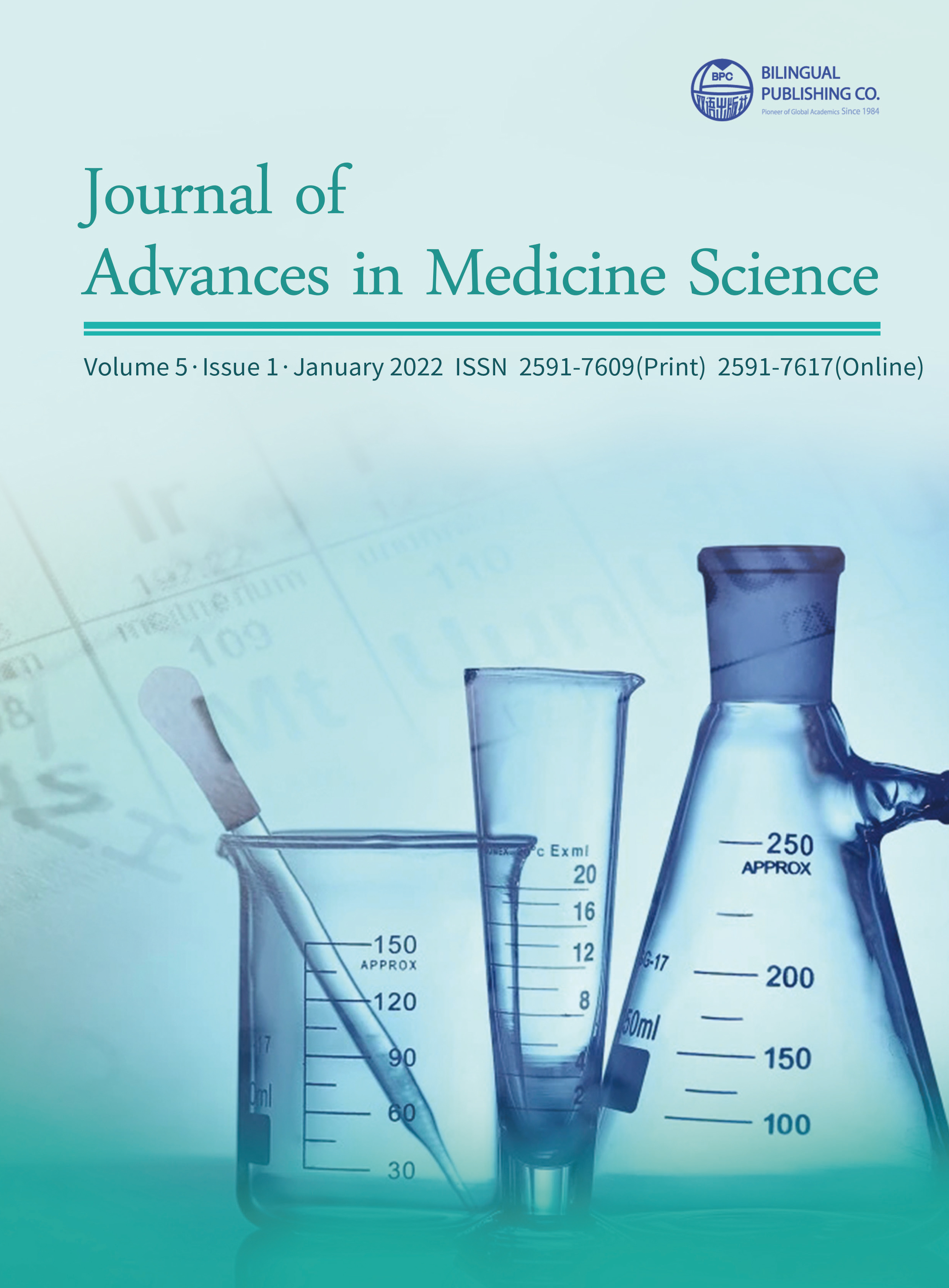Analysis of the Effect of Parathoracic Nerve Block and Compound Propofol Anesthesia on the Perioperative Period of Elderly Thoracotomy
DOI:
https://doi.org/10.30564/jams.v5i1.4107Abstract
Objective: To explore the application of thoracic nerve block and propofol anesthesia in the treatment and perioperative period. Methods: A total of 40 patients with thoracotomy for esophageal cancer between May 2020 and September 2021 in the hospital were selected to participate in this study. All the patients were divided into reference and experimental groups according to the anesthesia protocol. For the experimental group, the parathoracic vertebral nerve block scheme was used under ultrasound guidance, with general anesthesia in the same manner, and after the surgical treatment of both groups, the patient-controlled intravenous analgesia (PCIA) regimen was applied to both patients. The time of surgery for the two patient groups, intraoperative propofol, postoperative pain conditions and postoperative blood glucose and NE, E, DA levels were measured and conducted for comparative analysis. Results: There is no significant differences between the two groups, besides, in the experimental group, propofol in surgery was less than that in the reference group; At the T6~T9 timepoint, patients in the experimental group had lower VAS scores in quiet and active conditions than those in the reference group; At the T9 timepoint, blood glucose and NE levels were higher than the T1, T4, T5 time point levels in each group; At the T4, T4 timepoint, E levels in both groups were lower than the T1, T9 time point level in each group; at T9 time point, the DA level was higher in the reference group than the T1, T4 time point level in each group; at T9 Time point, blood glucose and NE, E, DA were lower than those in the reference group. Conclusions: In the treatment of thoracotomy in elderly patients, thoracic paravertebral nerve block compound propofol anesthesia program can be used to patients, with striking anesthesia effect and remarkable recovery effect in perioperative period, which is conducive to relieving postoperative pain and worth promotion and application.
Keywords:
Thoracotomy, Parathoracic nerve block, PropofolReferences
[1] Yang, J., Xia, Q., He, W., etc., 2018. Effect of thoracic paravertebral nerve block on pain level, stress response, and immune response after thoracoscopic radical lung cancer surgery. Journal of Hainan Medical University. 03(v.24;No.202), 75-78.
[2] Cao, Q., 2018. Effect of ultrasound-guided thoracic paravertebral nerve block and epidural block on analgesia and hemodynamics in patients undergoing unilateral thoracotomy for lung cancer under general anesthesia. Sichuan Journal of Anatomy. 026(003), 84-87.
[3] Wang, Y.L., Zhang, W., Yao, Y.Y., etc., 2018. Effect of ultrasound-guided thoracic paravertebral nerve block on stress response and postoperative analgesia in patients undergoing thoracotomy. Chinese Journal for Clinicians. 46(05), 101-104.
[4] Huang, R.Ch., Zhang, Sh., Ye, Y.Y., etc., 2019. Effect of continuous thoracic paravertebral nerve block combined with general anesthesia on serum lipocalin and postoperative cognitive function in elderly patients undergoing thoracotomy. Journal of Guangxi Medical University. 36(02), 43-48.
[5] Zhang, Y.Q., Wang, Sh.G., 2018. Analysis of ultrasound-guided paravertebral nerve block anesthesia in clinical thoracotomy. China Continuing Medical Education. 10(012), 68-69.
Downloads
Issue
Article Type
License
Copyright and Licensing
The authors shall retain the copyright of their work but allow the Publisher to publish, copy, distribute, and convey the work.
Journal of Advances in Medicine Science publishes accepted manuscripts under Creative Commons Attribution-NonCommercial 4.0 International License (CC BY-NC 4.0). Authors who submit their papers for publication by Journal of Advances in Medicine Science agree to have the CC BY-NC 4.0 license applied to their work, and that anyone is allowed to reuse the article or part of it free of charge for non-commercial use. As long as you follow the license terms and original source is properly cited, anyone may copy, redistribute the material in any medium or format, remix, transform, and build upon the material.
License Policy for Reuse of Third-Party Materials
If a manuscript submitted to the journal contains the materials which are held in copyright by a third-party, authors are responsible for obtaining permissions from the copyright holder to reuse or republish any previously published figures, illustrations, charts, tables, photographs, and text excerpts, etc. When submitting a manuscript, official written proof of permission must be provided and clearly stated in the cover letter.
The editorial office of the journal has the right to reject/retract articles that reuse third-party materials without permission.
Journal Policies on Data Sharing
We encourage authors to share articles published in our journal to other data platforms, but only if it is noted that it has been published in this journal.




 Lei Feng
Lei Feng

